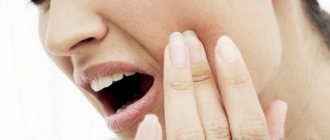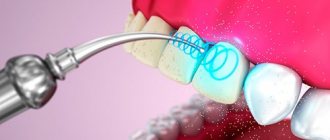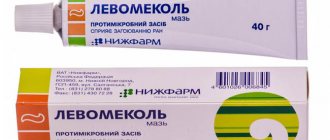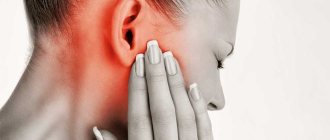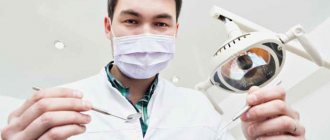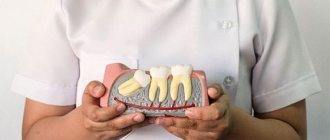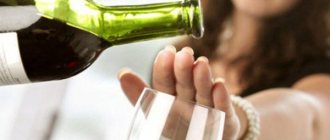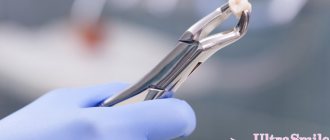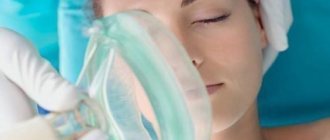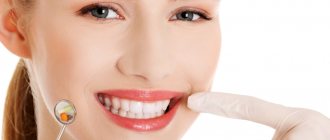Miramistin - composition and release forms
The drug is available in pharmacies without a prescription, in the form of an ointment or solution. Both medicines are ready for use; they do not need to be further diluted with water or combined with other substances. Since miramistin is used in the form of a rinse solution for dental pathologies, the composition of this particular form of the drug, action, indications and contraindications will be discussed below.
Miramistin solution is a clear, colorless liquid. If you shake the bottle, a light foam forms. A solution with a concentration of the active component of 0.01% is offered for sale in bottles of 540, 100 and 150 ml. Composition of Miramistin:
- benzyl dimethyl ammonium chloride monohydrate;
- purified water.
The bottle is placed in a cardboard box, additionally included are instructions for use and a spray nozzle, thanks to which the product is used sparingly and you can effortlessly treat the mouth of an infant, which he does not yet know how to rinse on his own.
What else can you use?
A good analogue of Miramistin is Asepta Active, a mouth rinse. The drug combines painkillers and anti-inflammatory substances. The composition of the medicine enhances the antiseptic effect, quickly eliminates pain and discomfort and speeds up the treatment process.
Octenisept, which is also actively used in Europe, is also suitable for a child. Among other analogues, one can also highlight Hexoral.
The solution is contained in a plastic bottle. It is very convenient to carry, it will not break and will not injure you from fragments.
If you accidentally shake the bottle or actively rinse your mouth, the solution will begin to foam violently. Don't be scared - this is a normal reaction. To avoid this, you should not actively “gurgle” your larynx while rinsing.
Please note
! It is important that the solution completely covers the throat and does not form foam.
If pathologies of the tonsils or throat form, this does not interfere with the action of the drug. On the contrary, the medicine cleanses well and quickly heals these wounds and prevents the appearance of new ones.
It is worth knowing that Miramistin does not have an analgesic effect, but it perfectly relieves inflammation, which is the causative agent of pain.
There may be a slight burning sensation that quickly subsides. They are determined by the composition of the product.
A distinctive feature of the antiseptic is that it does not change with changes in temperature and light. This does not mean that you can safely leave it in the refrigerator or under the rays of the scorching sun. But warming up the solution a little before rinsing is allowed.
Miramistin does not have a strong smell or taste, which makes it an ideal medicine for children, since they are often picky when they hear an unpleasant smell or feel an unpleasant taste.
If the child is not yet a year old and he constantly uses a pacifier, then you can dip it in the product and give it to the baby. Thus, the composition will end up in the child’s mouth and spread throughout the mucous membrane.
Important
! Do not give the drug in spray form to infants. He may get scared, resulting in a spasm, which will become an additional problem.
"Miramistin" is a surface-active drug. It can be combined with other medications, especially since it is compatible with many well-known disinfectants.
It is worth remembering that this is, first of all, a medicine. Self-treatment can only worsen the situation, so you should definitely check with a doctor.
Pros and cons of the drug
Miramistin is rightfully the most popular, well-known and recommended antiseptic for external treatment and mouth rinse, which is explained by the following advantages:
- High antimicrobial activity - the product neutralizes gram-negative, gram-positive, anaerobic, aerobic microorganisms, including those that are resistant to antibiotics. It is most effective for infections caused by staphylococci, streptococci, trichomanas, chlamydia, spirochetes, Candida fungi, and herpes virus.
- The ability of the drug to accelerate tissue regeneration due to the formation of a protective film on the surface, disinfection, prevention of re-infection and drying of the wound surface.
- Versatility - the composition allows you to use the product not only as a mouth rinse, but also as a disinfectant solution for removable dentures;
- Can be used during pregnancy and for treating children.
- Various bottle sizes.
- Economical consumption thanks to the spray nozzle.
- Minimal side effects and contraindications.
Thus, miramistin can be used by patients of all ages, using a product for rinsing or irrigating the oral cavity for stomatitis, gingivitis, periodontitis, candidiasis, herpes, as well as after tooth extraction and when wearing removable dentures. The composition is suitable for children, the drug is not prohibited during pregnancy and breastfeeding. For children who do not yet know how to rinse their mouth, a convenient spray nozzle is provided, which greatly facilitates the use of the drug.
The disadvantages include the relatively high cost of the drug and limitations in the duration of the course of treatment - long-term use (more than 10 days) can disrupt the microflora in the oral cavity and cause irritation such as allergic reactions.
Application of solution in dentistry
According to the classification, the drug belongs to cationic antiseptics. It not only has an anti-inflammatory and antimicrobial effect, but also improves immunity at the local level. When used in the mouth, macrophages and phagocytes that are beneficial and important for human health are activated. It is used to destroy:
- anaerobic bacteria;
- some fungi (in particular, yeast, dermatophytes and penicillin);
- many streptococci and staphylococci;
- herpes virus.
All these unpleasant microorganisms can cause complex diseases in the oral cavity. When they get into a wound on the gum, they provoke suppuration, a rash on the palate or the inner surfaces of the cheeks, under the tongue. Therefore, they can remove the consequences of stomatitis and painful candidiasis, and improve the condition of periodontal disease or periodontitis in children and adults.
For elderly patients, this antiseptic is indispensable if it is necessary to thoroughly clean dentures every day. The complex insert structure is not easy to thoroughly clean from food debris and plaque. This leads to irritation of soft tissues, the formation of wounds and ulcers. By using Miramistin daily for gums and rinsing implants, you can reduce the risk of such unpleasant complications.
How often do dentists use Miramistin?
Miramistin is used in dental practice not only to eliminate gum inflammation. The drug in the form of a spray or solution is used to treat stomatitis, gingivitis, periodontitis, periodontitis, as well as to prevent inflammation after dental treatment or surgery.
Miramistin can also be used to treat removable dentures; the drug is excellent for the treatment of candidiasis and other fungal diseases in adults and children.
- For stomatitis,
Miramistin is suitable both in the form of a spray and in the form of a rinse solution. The spray should be used 3 times a day for 7-10 days, spraying the drug onto the mucous membrane. You can rinse your mouth with Miramistin solution. - For herpetic stomatitis,
it is worth adding antiviral and immunostimulating agents to treatment and rinsing with Miramistin, after consultation with a specialist. - In case of simple inflammation of the gums
, to increase the effectiveness of treatment, rinsing with Miramistin should be supplemented with the removal of tartar.
Is Miramistin effective for stomatitis?
The drug has antimicrobial and bactericidal properties, destroying gram-negative and gram-positive microflora. Under the influence of Miramistin, the proliferation of fungi is inhibited, stopping the development of the disease. The medicine helps to form an adequate and correct immune response. As a result:
- local immunity significantly enhances its protective properties;
- the infection stops spreading to healthy tissue;
- already damaged tissues are restored faster;
- the drug helps to adsorb (collect) pus and remove waste products of pathogenic microorganisms;
- stops inflammatory processes.
Miramistin is available for sale in three forms: as a spray, solution and ointment. This helps the patient choose the most convenient option for using the drug.
A big advantage of the drug is its good compatibility with other antibiotics that are taken to increase tissue regeneration, as well as the taste of the drug. Many medications that are intended for treating the oral cavity are produced with an unpleasant taste. This becomes a problem when using them for children. Reflex vomiting and increased salivation can create a dangerous situation for the child’s health. Miramistin is distinguished by the absence of antipathetic odors and tastes. The solution is more similar in taste to plain water, which greatly simplifies the procedure for using it for children.
The drug is also suitable for preventive purposes when one of the family members already has the problem. To do this, the oral cavity is sprayed with Miramistin solution 2 times a day, but the drug cannot be used for more than 10 days.
The use of the drug does not always guarantee a positive result in treatment. Miramistin will not bring the expected result for allergic stomatitis. Treatment may fail if the disease is caused by dental problems. These include: the presence of periodontal disease or tartar, advanced caries, as well as the presence of other inflammatory processes. First you need to eliminate the original cause. Then just start fighting stomatitis.
Miramistin for gum inflammation
Miramistin is often used for gum inflammation, which manifests itself as a symptom of various dental ailments. The drug has proven itself in complex treatment, where it is used to rinse the mouth. To obtain the most positive result from the rinsing procedure, you need to properly prepare the gums and mucous membranes. This is done as follows:
- The oral cavity is thoroughly cleaned with conventional hygiene products (brush, dental floss and toothpaste). This will make it possible to eliminate plaque and food debris from all hard-to-reach places where the drug should subsequently reach.
- The drug will give a positive effect faster if you increase blood circulation. To do this, you should massage your gums. It is done using the thumb and index finger. The gums are massaged using massage movements for five minutes. For massage, you can use a paste containing medicinal herbs or a drop of essential oil.
- After the massage, the oral cavity is rinsed with water at room temperature (in cases where additional products were used).
Further, all rinsing procedures occur in the order prescribed by the doctor.
In dentistry, Miramistin is also used for the treatment of periodontitis, for hygienic procedures for removable dentures, and also as an effective means for the prevention of microbial complications that may arise after surgical interventions on the oral mucosa.
Gum diseases
Loose teeth, painful gums and bad breath are just some of the unpleasant symptoms of gum disease. The most common diseases are periodontal disease. periodontitis and gingivitis. the clinical picture of which allows them to be classified as one group of diseases.
Usually the reason for going to the dentist is toothache, but the almost painless chronic course that some diseases of the teeth and gums take only complicates the situation and can lead to the loss of healthy teeth.
This is why it is recommended to visit the dentist at least twice a year.
Gum diseases in children at an early age significantly affect the formation of permanent dentition. Thus, new teeth are embedded in the gums, which, even when they appear, can be affected by caries. These children require regular dental care.
With periodontitis, the gums become inflamed and lose their ability to hold the tooth in the jaw bed. Treatment of gums with periodontitis should be immediate - when the first signs of inflammation appear, you should consult a dentist.
This is interesting: Bad breath in adults (rotten, sour, rotten): causes, treatment in women and men
The antiseptic drug Miramistin® will help reduce inflammation of the mucous membrane, prevent infection and fight gum disease.
Miramistin® has a wide spectrum of antimicrobial activity, which allows you to effectively fight bacteria, fungi and viruses that affect the mucous membrane. Thanks to this, the drug is used in pediatric dentistry in the treatment of stomatitis and other oral lesions of bacterial or fungal origin.
Thus, thanks to the special formula of the drug, treatment of gum diseases with Miramistin is effective for inflammatory diseases of various etiologies.
We suggest you read: The lower jaw hurts on the left and right when I open my mouth, I can’t yawn widely, there is pain in the upper jaw joint
To rinse, you need to put 15 ml of undiluted Miramistin in your mouth and start the procedure. When rinsing, it is important to ensure that the gums come into contact with the antiseptic. After rinsing, the drug should be spat out.
Doctors recommend repeating the procedure twice a day for 10 days until the inflammation is eliminated.
Miramistin is used in dental practice not only to eliminate gum inflammation. The drug in the form of a spray or solution is used to treat stomatitis, gingivitis, periodontitis, periodontitis, as well as to prevent inflammation after dental treatment or surgery.
Miramistin can also be used to treat removable dentures; the drug is excellent for the treatment of candidiasis and other fungal diseases in adults and children.
- For stomatitis, Miramistin is suitable both in the form of a spray and in the form of a rinse solution. The spray should be used 3 times a day for 7-10 days, spraying the drug onto the mucous membrane. You can rinse your mouth with Miramistin solution.
- For herpetic stomatitis, it is worth adding antiviral and immunostimulating agents to treatment and rinsing with Miramistin.
- In case of simple inflammation of the gums, to increase the effectiveness of treatment, rinsing with Miramistin should be supplemented with the removal of tartar.
The drug has virtually no contraindications, but Miramistin is not recommended for use for more than 10 days. Also, people with individual intolerance to the drug should not rinse their mouths with the solution. In very rare cases, Miramistin may cause an adverse reaction in the form of burning and allergies.
An effective alternative to Miramistin can be Asepta Active mouth rinse. This remedy combines a combination of anti-inflammatory, analgesic components, benzydamine and the antimicrobial component chlorhexidine.
This composition complements the antiseptic effect of the mouthwash by quickly relieving pain, which significantly increases the effectiveness and speed of treatment of gum inflammation.
Use for toothache
Often after tooth extraction, the doctor prescribes rinsing with various antiseptic solutions. The primary goal of this procedure is to prevent wound infection. But in addition to this, Miramistin has an anti-inflammatory effect, affecting the symptoms of the pathological process. One of the symptoms of inflammation is pain. The drug also saves from it.
Almost no one prescribes this remedy as a first-line fighter against toothache. In most cases, this is done to prevent the development of this unpleasant syndrome.
In what cases is rinsing with Miramistin prescribed:
- After the retraction. Tooth extraction can be performed against the background of an inflammatory process. The procedure may be complicated due to an inconvenient location in the hole or doctor errors. In such cases, to prevent the development of alveolitis, rinsing with this solution is prescribed. The course lasts up to 10 days, during which time you need to perform oral baths 2-3 times daily.
- In the treatment of gum or periodontal inflammation. Therapy for gingivitis and periodontitis should begin with eliminating the main causes and factors leading to their occurrence. To do this, professional hygiene is initially carried out, after which, ideally, you should give up smoking and other bad habits. Immediately after the procedures, the doctor prescribes a course of rinsing, which may include not only rinsing with the solution in question, but also applying another drug, Cholisal gel.
- In the treatment of stomatitis. Dentists note that this is one of the best remedies for this pathology. It quickly suppresses the activity of viruses, which leads to suppression of their condition and a gradual decline in the disease.
These are the most common oral applications. If the patient has any other indications, the doctor will definitely tell you about it and prescribe a course of this drug.
How to use the drug
The instructions for use describe in detail in what cases and how Miramistin should be used.
- Herpetic stomatitis. With this form of stomatitis, rinsing with miramistin is prescribed in combination with taking antiviral and immunomodulatory drugs. You need to rinse your mouth with the product for 1 minute 2-3 times a day. To treat the mouth of children, use a spray nozzle or a cotton pad.
- Gingivitis and periodontal disease. In this case, it makes sense to rinse your mouth with miramistin only after curettage has been carried out and the teeth have been completely cleaned of plaque and tartar deposits.
- Tooth extraction or opening of an abscess, including in children and during pregnancy. After any surgical intervention in the oral cavity, you should not rinse your mouth vigorously. Miramistin is used as a bath - take a tablespoon of the product into your mouth and hold it for about 1 minute on the side from which the tooth was removed or the gumboil was exposed. Then you need to spit out the product.
- Candidiasis and other fungal diseases. For such pathologies, adults need to rinse their mouths; for treating children, treat the mucous membrane with a cotton swab dipped in a miramistin solution.
- To disinfect dentures, apply the product from a spray bottle to the cleaned structure.
In the first few seconds after applying the product to the mucous membrane, a burning sensation may occur, which goes away on its own over time.
Antiseptic rinses
Chlorhexidine. A medicinal product, an antiseptic with a wide spectrum of action. It is characterized by high antimicrobial activity and long-lasting action (after rinsing, a thin film remains on the teeth and oral mucosa, “working” to improve the health of the gums for a long time).
In addition, chlorhexidine solution, which can always be bought at a pharmacy, is cheap - no more than 20-25 rubles per 100 ml bottle (0.05% aqueous solution). Despite the many benefits of chlorhexidine, some people do not like the bitter taste of the drug and its ability to darken the teeth and tongue.
However, they darken slightly and only with prolonged use.
Rinse your mouth only after brushing your teeth 2-3 times a day. Rinse time is at least one minute. To enhance the effect, you can apply an anti-inflammatory gel to the inflamed gums after the procedure.
Miramistin. The antimicrobial effect of this drug is not as broad as that of chlorhexidine, but unlike it, it is also effective against herpes viruses and can be used for diseases such as herpetic stomatitis.
Features of use for children
Miramistin can even be used to treat infants - and this is its great advantage. The spray nozzle simplifies and facilitates the treatment of mucous membranes - just gently open the baby’s mouth with a finger or a spoon and quickly apply the product by pressing the lid nozzle.
Two or three pumps are enough just to spray the oral cavity. It is necessary to ensure that the drug does not get on the tonsils and larynx of children - ingestion of the drug is not recommended. You can treat your mouth in another way: soak a cotton swab in the solution and wipe the mucous membrane, tongue and gums with wide movements.
The main thing is not to have too much money. Although it has a neutral taste and odor, allergic reactions are often observed in young children with excessive or prolonged use.
Features of use during pregnancy
Is it possible to use Miramistin during pregnancy? This is a question that interests many patients. Yes, you can. But only if you treat it exclusively in the mouth during pregnancy - the drug does not penetrate through the mucous membrane into the blood and cannot harm the health of the child. This remedy is not suitable for douching during pregnancy. Also, during pregnancy, it is strictly forbidden to swallow the medicine.
Some doctors do not recommend using Miramistin during pregnancy, but this is not explained by the high risk of damage to the development and health of the fetus. The instructions indicate that both the danger and safety of treatment with this drug during pregnancy have not been officially proven or confirmed.
Contraindications
The only contraindication is individual intolerance to the main active ingredient of the drug in adults or children. In this case, it is recommended to rinse your mouth with another product with a similar effect - for example, chlorhexidine, its composition is different. There are currently no cases of miramistin overdose recorded.
If the drug is swallowed in children, gastric lavage should be done and vomiting should be done, then take 1-2 tablets of activated charcoal. During pregnancy, it is enough to simply take charcoal; gastric lavage is contraindicated.
It is important to know:
